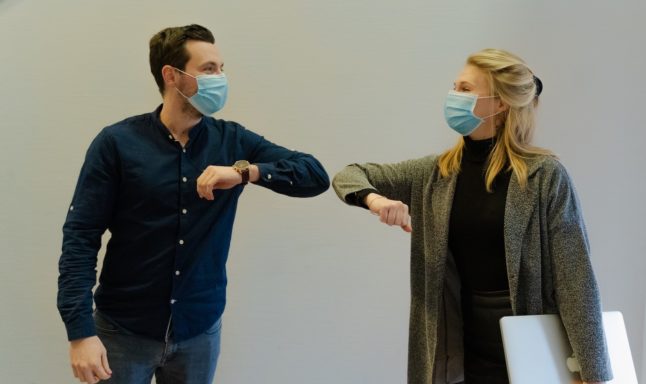The new measures come as authorities anticipate the arrival of the highly-mutated Omicron variant, believed to be more contagious than previous strains.
READ MORE: Switzerland announces new Covid measures to apply from Monday
“Only people who have been vaccinated or cured will have access to inside spaces at restaurants, cultural establishments and sports and leisure facilities, as well as to indoor events,” the country’s Federal Council said in a statement.
Private gatherings will be limited to 10 people, including children, if anyone among the group is not vaccinated or cannot show proof of recovery.
READ MORE: Switzerland to relax arrival test rules from Monday
The measures are aimed at preventing new infections among the unvaccinated “because they more easily transmit the virus and are more frequently faced with complications”, it added.
The vast majority of patients in intensive care in Switzerland, as elsewhere, are unvaccinated. Their number “has tripled in a month and a half”, Health Minister Alain Berset told reporters.
As of Monday, Switzerland had at least 300 Covid patients in intensive care, which it sees as a critical development. “This figure will increase to 350 or 400 by the end of the year,” the statement said.
More than 66 percent of Switzerland’s population of 8.6 million has been vaccinated, with Pfizer and Moderna jabs authorised for use in the country.



 Please whitelist us to continue reading.
Please whitelist us to continue reading.
Having an editorial line should be compatible with being accurate. I think the text of the news above does not agree with the official text. Starting with the title, since vaccinated are also matter of tighter rules. Also along the text some citations have not counter part on communications from the Swiss medical authority, which in fact is a very read:
https://www.bag.admin.ch/bag/en/home/das-bag/aktuell/medienmitteilungen.msg-id-86544.html